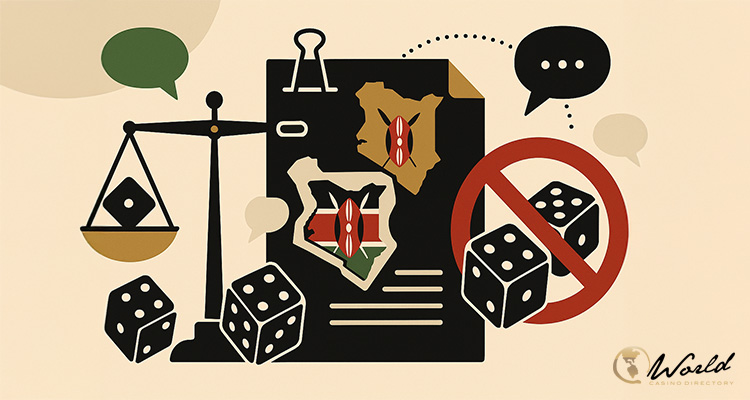The Gambling Control Bill (National Assembly Bill No. 70 of 2023), currently under debate in Kenya’s National Assembly, has sparked intense discussions among lawmakers. The Bill aims to overhaul the country’s gambling sector by introducing tighter regulations to govern betting, casinos, prize competitions, and public lotteries. One of the most notable proposals is the establishment of the Gambling Regulatory Authority of Kenya, which would replace the Betting Control and Licensing Board (BCLB). This new body would take charge of licensing, regulation, and enforcement within the gambling industry, ensuring a more robust system for tackling emerging challenges.
The Bill comes at a time when gambling addiction, particularly among the youth, has become a serious concern in Kenya. Members of Parliament (MPs) are advocating for significant changes to safeguard young people from the detrimental effects of unchecked gambling. Hon. Kwenya Thuku, MP for Kinangop, who introduced the motion for the Mediation Committee report, highlighted the urgent need for reform. “We are dealing with a growing menace that has gone unchecked for too long,” Thuku stated, emphasizing that the new regulatory authority would help address the issue effectively.
Strengthening Regulations to Combat Youth Gambling
One of the key proposals in the Bill involves raising the legal gambling age from 18 to 21, a move supported by several MPs, including Dagoretti North’s Beatrice Elachi. She argued, “We need to build an age limit on gambling in Kenya, just the way we’ve done with alcohol — that 21 age limit should also apply here.” In addition, MPs are pushing for the introduction of a higher minimum amount required to place a bet, which they believe will act as a deterrent for young and impulsive gamblers. Elachi explained, “If you increase the amount, it becomes harder for youth to participate impulsively.”
These proposals aim to curb the rising number of young people who are becoming addicted to gambling, often with the false belief that it is a path to instant wealth. As stated on the official Parliament of Kenya website, Hon. Kimani Ichung’wah, the Majority Leader, also voiced his support for these measures, noting that gambling should not become a daily activity for youth. He criticized the pervasive culture of gambling advertising, particularly on radio and TV stations, where promotions begin as early as 5 a.m., urging that laws be put in place to regulate this.
In line with the proposed amendments, MPs have called for more stringent measures to hold gambling operators accountable. The Gambling Control Bill includes provisions that would impose hefty sanctions on operators who fail to comply with the new regulations, particularly those who allow minors to gamble. This is part of a broader effort to clamp down on the exploitative practices that have plagued the industry for years.
The Bill also aims to regulate gambling-related advertisements, especially those broadcast outside the designated watershed hours. This move comes in response to concerns that such advertisements are disproportionately targeting vulnerable youth, often glamorizing gambling as a shortcut to wealth. Kimani Ichung’wah emphasized, “We must have laws like this that discourage irresponsible gambling,” reinforcing the need for a regulatory framework that discourages excessive betting and promotes responsible behavior.
Additional Measures to Strengthen the Industry
In addition to the proposed age limit and minimum bet requirements, the Bill outlines plans to tighten the verification process for individuals registering on gambling platforms. According to BCLB Director Peter Mbugi, individuals will be required to submit a selfie holding their national ID as part of a new registration process to ensure that only eligible individuals can access these platforms. This verification system aims to prevent underage gambling and ensure that operators adhere to legal requirements.
Further, the Bill introduces new capital requirements for gambling operators. Small-scale betting shops will be required to make a minimum capital investment of Ksh50 million, while public gaming operators, including casinos, will face a significantly higher threshold of Ksh5 billion. These measures are designed to raise the barriers to entry, ensuring that only serious, well-capitalized operators enter the market.
Hon. Caroli Omondi, MP for Suba South, expressed that the Bill is crucial for bringing order to the gambling sector, which has grown rapidly in recent years. By introducing comprehensive legal and regulatory frameworks, the Bill aims to regulate the sector in a way that balances its economic benefits with the protection of consumers, particularly the youth, from harmful practices.
As the National Assembly continues to deliberate, the Bill is expected to be passed in the coming weeks, with MPs and stakeholders optimistic that the new framework will curb irresponsible gambling while promoting a responsible and well-regulated gambling environment.


